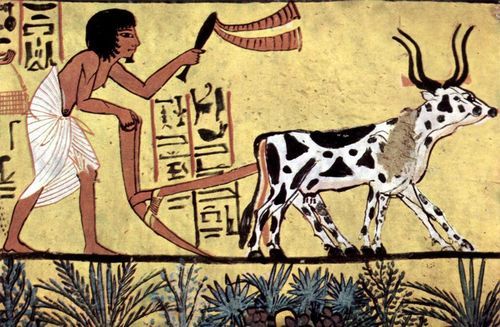A Deep Dive into Eden and the Fall

My teenage daughters have a delightful custom of putting on favorite conference talks while we cook and clean up on Sunday. This Sunday it was Elder Holland on why understanding the Fall was important to understanding the Atonement.
Coincidentally, I had been thinking about the logic of Eden and the Fall on the drive to Church and during the Sacrament, for no particular reason.
What I am going to tell you is that the story of Eden and the Fall has a deep logic to it that connects with the basic and unavoidable features of mortality and progress. It’s a fount of philosophy.
Is There No Other Way
In versions of the Fall story, Adam and Eve are given contradictory commandments–multiply and replenish on the one hand and don’t eat the forbidden fruit of the tree of knowledge on the other. This seems really arbitrary to many, especially given that we reject that the forbidden fruit was sex per se.
- Mortality is about choices and limits. You can make meaningful choices only because when you choose to do one thing you are necessarily giving up on something else. Having a body and being in time means you are always in every moment deeply limited by what you can do. So having contradictory commandments for Adam and Eve isn’t some odd arbitrary feature of one particular narrative–it is the basic feature of being a human being–at every moment the good you can do involves not doing a bunch of other good, the commandment you are actively following means not actively following another. (In this sense, negative commandments, Thou Shalt Nots, are the most merciful, because those are the only ones you can follow more than one of at a time).
- Multiply and replenish means growth and particular relationships. Growth–having kids who have kids–and particular relationships–family, kids, siblings, parents, and so on. Growth means you aren’t currently good enough, there is something less than complete about your current state, so ‘knowledge of good and evil’ is baked in to growing. You can’t grow without some realization that this is better than that. Mortality means change, change means contrast, contrast means comparison, comparison is knowledge of good and evil. The idea that you can have growth without knowing good and evil is a square circle.
The Way is Shut
Again, not an arbitrary story feature. A world of choice is a world of consequences. A world of consequences is a world where you can’t simply walk back what you just did and revert to the prior state. Of course an angel and a flaming sword bars the way. Of course the way is shut. The angel is called time. The sword is called agency.
In Christ Shall All Be Made Alive
[speculation alert, not sure I believe this] How does Christ reverse the limitations of mortality? One way of understanding the Atonement potentially is that in the garden and in the cross Christ entered into a total communion with the entire human race. A moment by moment experience of your life and mine and his and hers, pains and sorrows and sins, glory and misery, all of it. He ended His mortal experience, in other words, by having the limits taken off and experiencing everything all at once, all goods, all commandments, all repentance, all consequences. Total growth, total knowledge of good and evil. Again, this is speculation. But if we follow that thread, then it means that when we commune with Christ, in some sense now and in a fuller sense later we will also experience fully and completely everything that it means to be human, the whole range, the whole enchilada, every last drop, limits no more. Which would create a really piquant play between Christ telling his disciplines ‘this is my body. Take, eat,’ and St. Paul preaching repeatedly that the Church is the body of Christ.
Ben Pratt
May 28, 2025
This resonates in all the right ways.
Marilyn
June 2, 2025
I think about “is there no other way” all the time. It is both a sad and a deeply meaningful question. So many circumstances in my life prompt that same question.